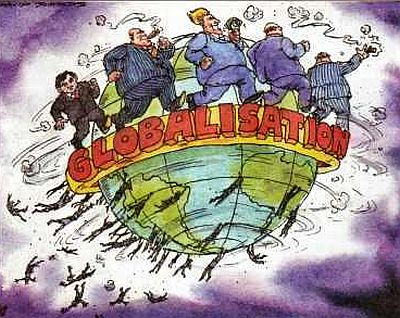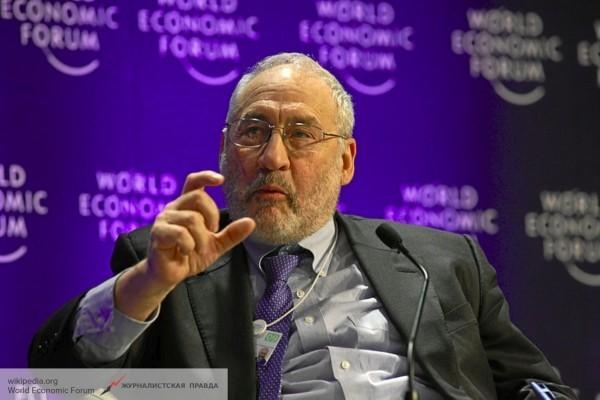
Columbia University Professor, Nobel laureate in Economics 2001, the year Joseph Stiglitz in his new book accused the neo-liberal ideology in the failure of market reforms in Russia.
The book is called “the Euro and its threat to the future of Europe (The Euro and Its Threat to the Future of Europe), an excerpt from which was printed the newspaper the Guardian. The book is devoted to the problems of the Euro, not of neoliberalism, but it is related things.
Market fundamentalism is a belief, not science
Joseph Stiglitz tried to answer the question about why slaves good intentions statesmen and ladies, trying to forge a stronger, more United Europe, created something that produced the opposite effect. In his opinion, the founders of the Euro was guided by the system of ideas and concepts about how the economy works, which were then fashionable, although was simply wrong.
The architects of the Eurozone, according to Joseph Stiglitz, believed in the power of the market, but they lacked understanding of its limited capacity and knowledge of those tools that would be able to get it to work. They believed in markets, but they lacked understanding of market constraints and what needed to be done to make markets work. Joseph Stiglitz noted that unshakable faith in the market are sometimes described as market fundamentalism, sometimes as neo-liberalism.
Market fundamentalists believed, for example, that if the government will only guarantee that inflation will be low and stable, the markets themselves guarantee growth and prosperity for all. The economist noted that while in most parts of the global market fundamentalism has been discredited, especially after the global financial crisis of 2008 years, such beliefs have survived and flourished in Germany, the main power in the Eurozone. These beliefs, he says, hold with such conviction and certainty, being impervious to new facts inconsistent with them, that they correctly described as an ideology.
Troubles have done neoliberalism in other parts of the world: as emphasized by Joseph Stiglitz, these ideas that the IMF and the world Bank pushed forward on a global scale, has led to a lost quarter-century in Africa, the lost decade in Latin America. And the results of the transition from communism to a market economy in the Soviet Union and Eastern Europe was, at least, did not meet expectations.
But the situation is improving, and according to Nobel prize winner, currently among young people is dominated by the idea that the neoliberal system has failed, and young people trying to understand the basic error of the market system. Moreover, Joseph Stiglitz stressed that, in his opinion, and in political circles are of the same opinion.
Adam Smith would be against neoliberalism
To understand what mistake was made by the neoliberals, it is necessary to turn to the classics. The English scientist John Locke’s book “Two treatises about the state Board”, published in 1690, the year, wrote: “the Reason people enter into society is the preservation of their property; and the purpose for which they choose and authorize a legislature, is to issued laws and established rules to guarantee and protection of ownership of all members of society, that limited power, and tempered in the domination of every part and every member of society.”
But within the framework of neoliberal ideology is the refusal of the legislature from regulating the activities of those groups that possess market power, that is, the government violates an unwritten social contract with the people of power that underlie any state. If these groups of the population for whom the government refuses from power, was a model of morality and integrity, nothing, perhaps, would not have happened.
However, unfortunately, things are very different people because of their innate shortcomings, among big businessmen have enough people willing to set the rules of the market to the detriment of ownership of the broad masses of the population. Such a feature of certain groups of society, by the way, is also not a secret. Here’s what I wrote about the merchant class of the Scottish scholar Adam Smith in his book “an inquiry into the nature and causes of the wealth of Nations” published in 1776: “the proposal on the publication of any new law or regulations relevant to the trade that comes from this class, it should always be treated with the greatest caution, it should be adopted only after a lengthy and comprehensive review to be extremely thorough but also extremely suspicious.
It comes from the class whose interests never completely coincide with the interests of society, which is usually interested to enter society astray and even to oppress him, and which indeed in many cases tricked and oppressed”. Modern traders, presents in our time, mostly financiers, have proved once again the validity of the characteristics given to them by Adam Smith.
As you can see, the ongoing developments in the economy and in economic theory, in principle, is quite understandable from the point of view of thinking of the scientists who worked hundreds of years ago. Neoliberals did not take into account human nature, which he wrote by Adam Smith. Human nature since then, little has changed. And the classics, unfortunately, nobody reads (books that thick), so the erroneous theory society from time to time trying to check on their own experience, filling cones next.
In more detail the nature of neoliberalism and of the future of economic theory that will replace it, as described in the book “the Nature and causes of the Russian crisis. White Swan: true to economic theory”, which is posted on the website https://tarasovhroniki.wordpress.com/. In this book I defend the same thesis advanced by Joseph Stiglitz (as well as many other economists): current problems of the Russian economy is to blame neoliberalism. And I am happy that our assessments matched. But I tried to understand why it happened, and find a way out of the situation.
In Russia currently, as in Germany, the neo-liberals still dominate the government. In the most vivid form they are presented, perhaps, in the financial sector: in the face of the head of the Bank of Russia Elvira Nabiullina and Finance Minister Anton Siluanov. But in the political circles of the country distrust of the protected economic model is clearly growing, not by days but by hours.
The President of Russia Vladimir Putin, at the present time, he usually follows the advice of the neoliberal bloc, but it seems that unhappy with them and trying to find other options for the development of the country.








